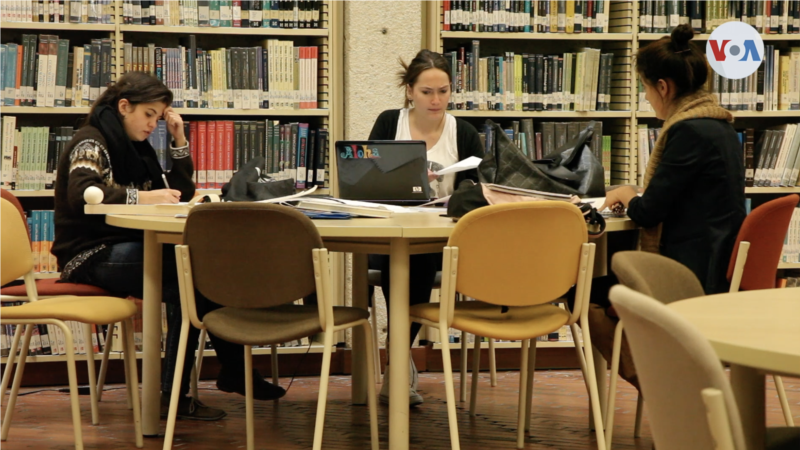
In Colombia, women suffering from menstrual cramps could be absent from their workplaces if a law recently submitted to Congress is approved.
The debate on the legislation will begin in the Seventh Commission of the Colombian legislature’s House of Representatives, and the vote is scheduled in the coming months. However, the initiative that emerged from legislators from the Pacto Histórico, the left-wing government coalition in Colombia, must have sufficient support from other parties to approve it.
“It must pass four debates, I would start with the House of Representatives from the seventh commission in which I am a part, all matters that have to do with health are dealt with there. When speakers are assigned, the first debate begins, and we hope it will be very soon because it has sparked a lot of debate throughout the country, ”he told the voice of america María Fernanda Carrascal, congresswoman of the Historical Pact and author of the project.
The initiative proposes that women who present very strong symptoms during menstruation can be absent from work once every 26 days.
“Workers and menstruating people have the right to a paid leave of one day per calendar month due to the impossibility of carrying out their workday due to the symptoms generated by their menstrual period. This paid leave will not affect your salary income, seniority, payment of premiums, vacations, bonuses, incentives, or other acquired labor rights,” the bill indicates.
Period pains
About 8% of menstruating women had to interrupt their daily activities, according to data from the National Administrative Department of Statistics (DANE), the government body in charge of compiling official statistics in Colombia.
Likewise, DANE revealed that most of the women who interrupted their daily activities because of their menstruation, did so due to associated physical symptoms such as stomach pain, back pain, headache, or general malaise (86%).
“Colombia has to update its labor law and has to offer dignity in the work spaces, that dignity requires that it be understood that since women are occupying more work spaces that we did not occupy before, these spaces have to adapt to our biological processes, so what we want is for it to be understood that the labor market, the work spaces have to adapt to people and not the other way around,” Carrascal told the VOA.
Precedents of the measure
In Colombia, the Special Assets Society (SAE), the state entity in charge of updating and managing assets seized from individuals who obtained them illegally, announced on March 8, in commemoration of International Women’s Day, that it will adopt the menstrual leave to its workers when their cycle prevents them from carrying out their work.
Globally, particularly in the Asian continent, countries such as Japan, South Korea, Indonesia and Taiwan have implemented this law. In Latin America, for its part, there is no country that has officially approved the leave for the menstrual cycle in its legislation.
Reactions to the initiative
The voice of america spoke with several Colombian women about this medical problem that could cause health problems such as endometriosis, a pathology that, according to the Colombian Association of Endometriosis, in the country there are approximately 3.5 million women currently suffering from this disease.
“It seems to me that it is good because many times when the day comes, women are unable to move or do not have enough energy to do their daily activities,” she told the VOA Melissa Galindo.
“Menstruation is not the same for all women and for some it is quite complicated, so it is positive because sometimes the pain related to the days prevents us from moving due to intense pain and if a license for the menstrual cycle were to become law, many women they would benefit”, stressed Diana Cuellar.
If the project is approved, women must go to the health service and request medical leave as they would for any other illness.
“If the pain or manifestations that occur during menstruation make them unable to function at a social or work level, it is a condition that is not normal and they should consult their doctor to carry out the studies and determine what the pathology is,” he explained. to the VOA María Camila Hernández, gynecologist.
Regarding the law, Hernández considers that it could generate limitations in access to work and could favor men.
“Women have fought to maintain equal spaces with men and this would bring work limitations for women having a monthly leave due to menstruation,” she concluded.
Connect with the Voice of America! Subscribe to our channel Youtube and activate notifications, or follow us on social networks: Facebook, Twitter and instagramm.














